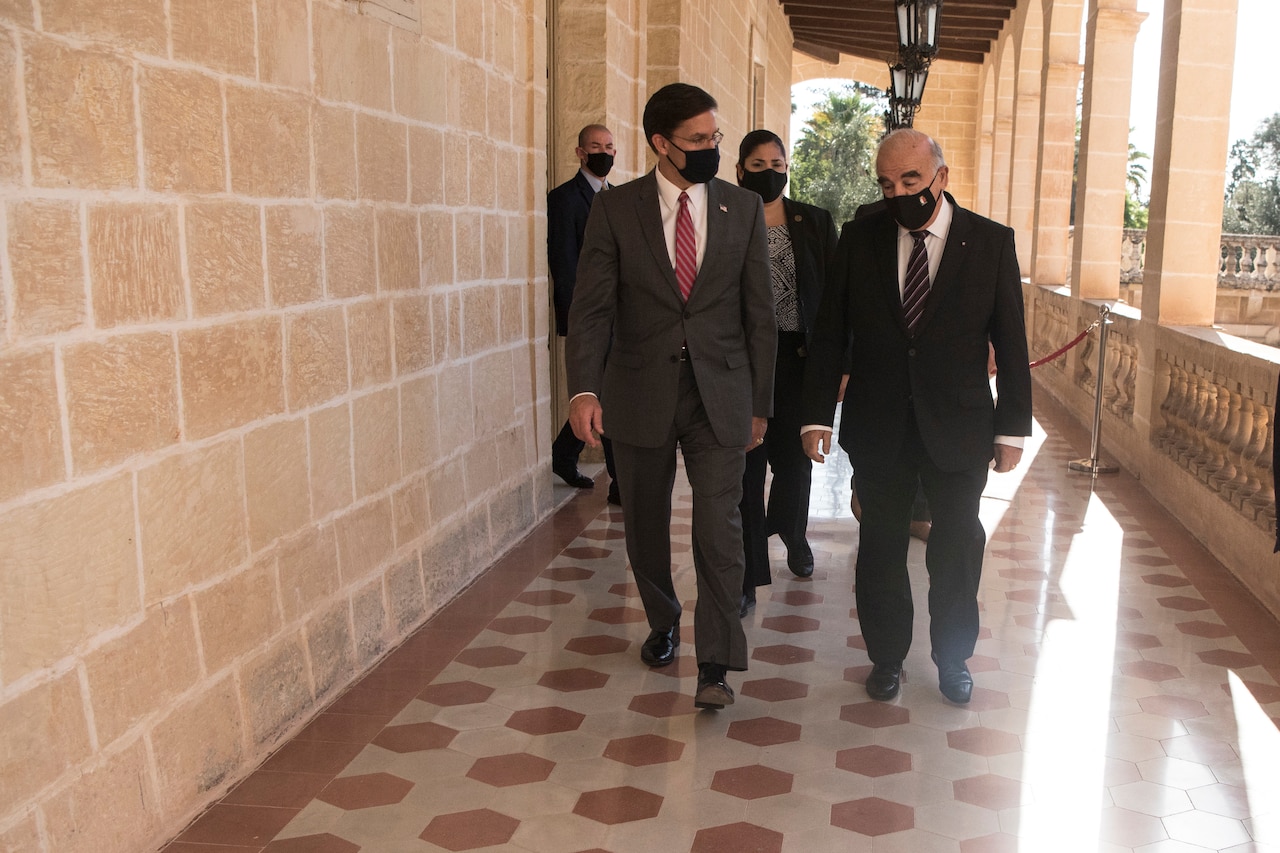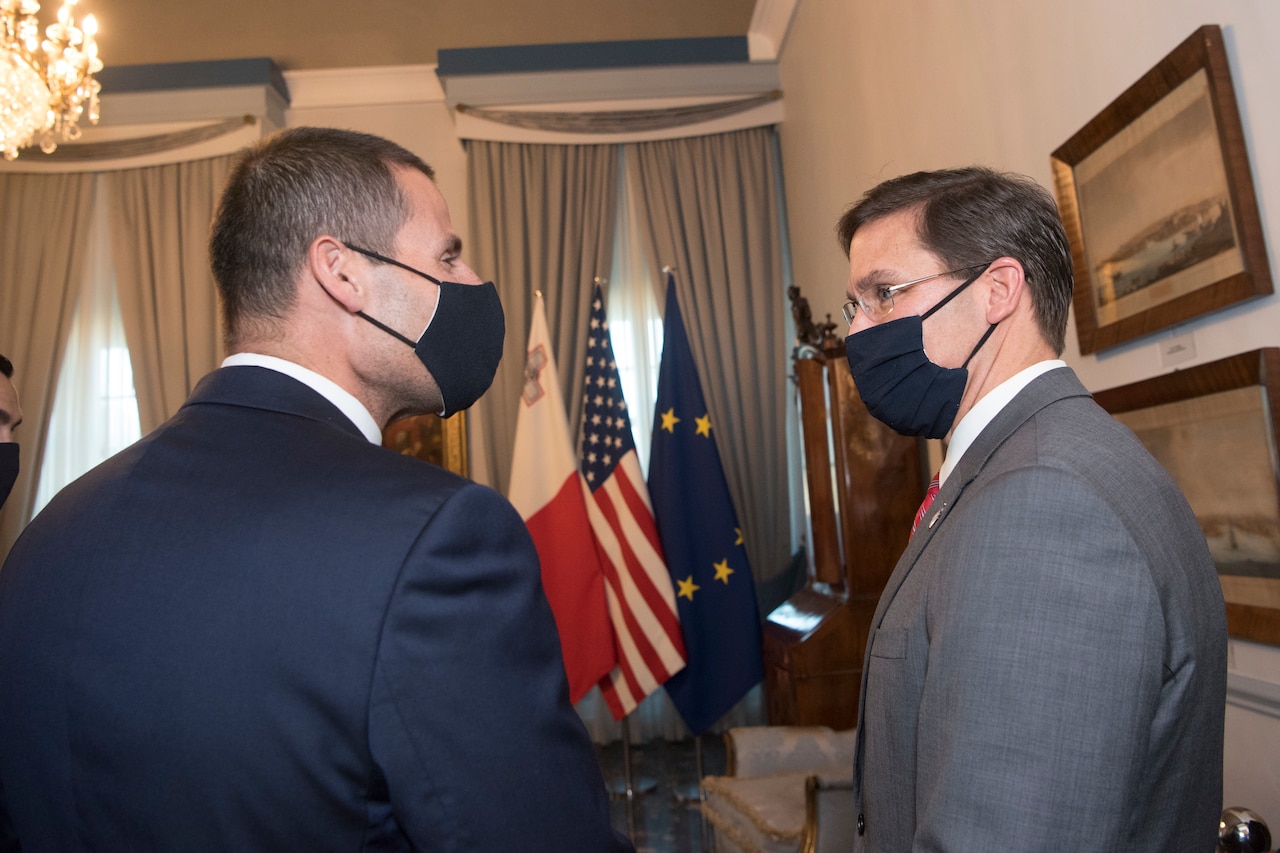Oct. 1, 2020 | , DOD News
The island nation is strategically located in the Mediterranean and has been the crossroads of the sea since the Phoenicians.
Malta has had an outsized effect on American history. During the U.S. Revolutionary War against Great Britain, some 1,800 members of the Knights of Malta fought in George Washington's forces. Valletta — the capital of the country — was a key port during the American efforts against the Barbary pirates in the early 1800s.

During World War II, the island was pounded daily by Nazi and Italian air forces. U.S. forces helped convoy supplies and equipment to the beleaguered island, highlighted by the arrival — just in the nick of time — of the oil tanker SS Ohio. The Ohio had been pounded and was barely afloat, yet the cargo of aviation fuel allowed allied forces to defend the island and ultimately hold off Nazi and Italian forces.
There are also many Americans who trace their heritage to Malta.
Malta is both blessed and cursed by its strategic location in the Mediterranean. It is "at the epicenter of the Mediterranean's global crossroads, bridging the continental, cultural and linguistic divides that separate Europe, Africa and the Middle East," said Michael Cutrone, performing the duties of assistant defense secretary for international security affairs. "This connective role makes Malta a critical partner in addressing transnational challenges, such as illicit trafficking, terrorism, organized crime and energy security."
The United States works closely with the Maltese Customs Department and has provided more than $3 million to fund training, equipment and expertise for the force. One example of this is the U.S. support of the Armed Forces of Malta Search and Rescue Training Center. The instructors at this school are still trained at the U.S. Coast Guard's National Search and Rescue School in Yorktown, Virginia, officials said.
Malta is also a front line state facing the irregular migration challenge. "North African instability and economic challenges propel desperate masses to seek solace on the shores of Malta," Cutrone said.
Malta has been a leader in the effort, and the U.S. Embassy works closely with Maltese officials and non-governmental organizations to promote integration and assist refugees, asylum seekers and third-country migrants, officials said. DOD officials stress that any comprehensive solution in the region should draw on Maltese expertise and their relationships with North African neighbors.
Great power competition reaches into all parts of the world. Closed societies seek to undermine sovereignty and the rules-based economic and diplomatic architecture that has existed since the end of World War II. "Foreign investment in telecommunications and national critical infrastructure can pose significant national security and privacy risks," Cutrone said. "Given this, the United States government remains concerned about China's efforts to push its 5G technology, which will leave countries susceptible to the Chinese government's potential to exert control over these networks."

DOD officials are also concerned about Russia's destabilizing efforts across Europe's southern flank and in the Eastern Mediterranean. DOD officials noted that Russia's efforts to establish a permanent base in Libya could endanger stabilization efforts across the region. Russian troops and capabilities in Syria on behalf of the regime of Bashir Assad have prolonged the civil war in that nation.
"It is critical that, as open and sovereign societies, we recognize — and remain united against — such malign influences," Cutrone said.
The United States sees the relationship with Malta as mutually beneficial and would like to increase cooperation on Malta's timeline, DOD officials said.








No comments:
Post a Comment